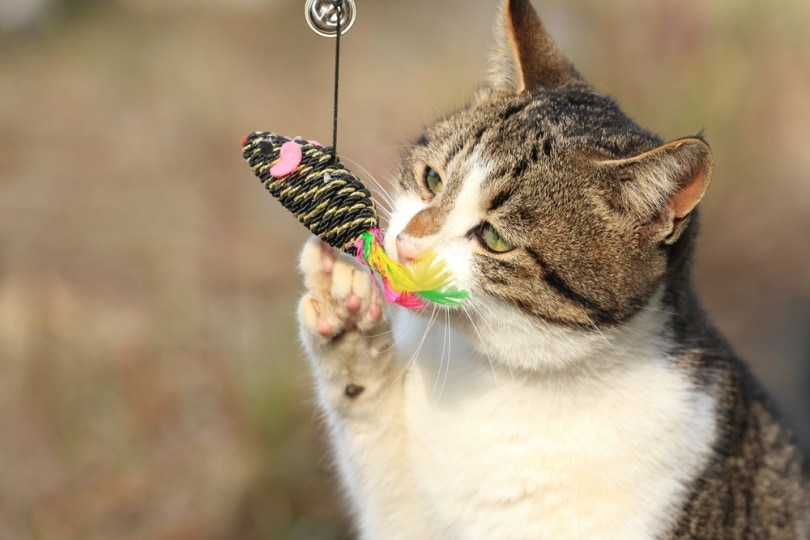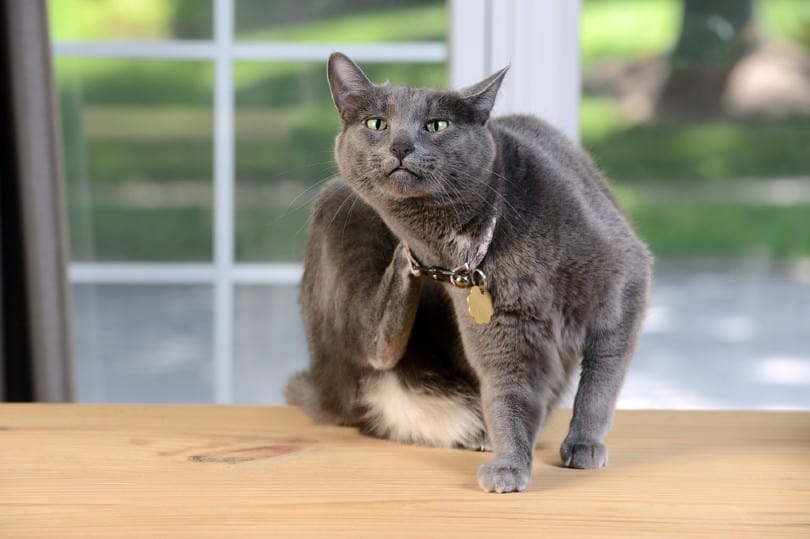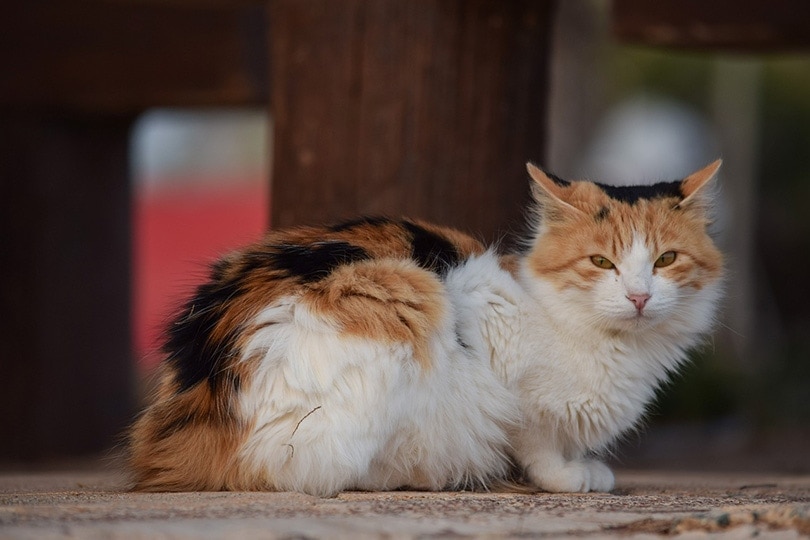My Cat Is Quiet All of a Sudden: 6 Possible Reasons Why

Updated on

Changes to your cat’s behavior can be worrying, especially if your cat is generally a chatterbox and has suddenly fallen into silence. Reasons for silence can range from the innocent to the serious, so it’s understandable to feel anxious about this change.
Determining the cause, however, relies very much on you and what other signs you’ve noticed that have accompanied the silence. Below, we’ve listed various reasons for your cat’s vocalization changes. Once you have a reason, you’re one step closer to getting your cat back to their normal, happy self.
The 6 Possible Reasons Your Cat Is Quiet All of a Sudden
1. Contentment
If your cat is a new addition to your house, it might be that their silence is a sign of contentment. An adopted cat might have a lot to say at first, and excessive meowing is a sign of stress. However, if they’ve settled into a routine, your new cat might be relaxed enough to show you its natural, laid-back personality.
Changes also occur as your cat grows up. Kittens and adolescents can be loud about the physical changes they’re going through. However, as they mature, you might find they become more relaxed and quieter.
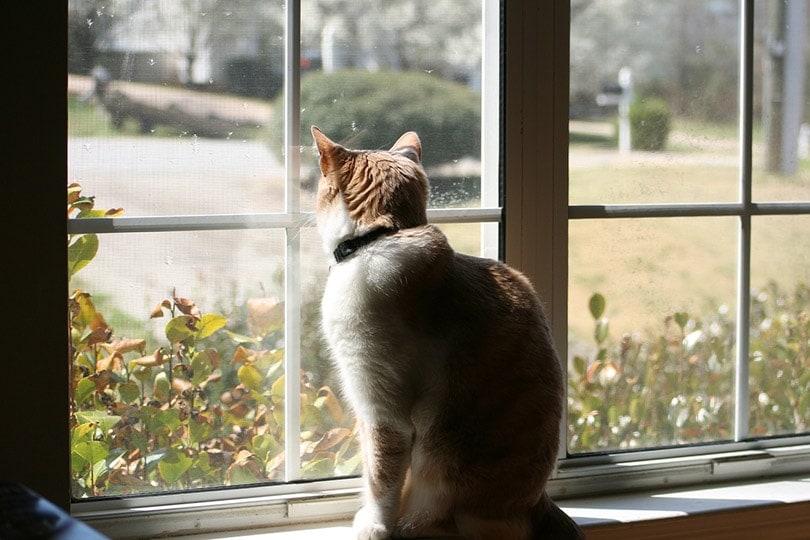
2. Sadness
Cats have a misplaced reputation for being aloof, but any cat lover knows how much their cat cares for them. Changes to a household, whether through someone moving out or dying, will make your cat sad. They will grieve the loss, and we’re not just talking about the loss of a person.
Cats will grieve the loss of another animal that they’ve bonded with, like another cat or a dog. Understandably, you might be tempted to get another pet to fill this void, but giving your cat time to grieve is important. Cats aren’t good with change and may struggle with so much change in a short space of time. The best remedy is time and your attention.
3. Change
Cats appreciate consistency and their routine, so any disruption to either can be distressing. This disruption could be something like a change to your work schedule or dating someone new. Your cat will notice and miss you if it means less time at home. Another example would be introducing a new pet into your home or having a baby. Not only do these examples interrupt their routine, but they also take some time away from you.
To stop your cat from feeling pushed out or lonely, try to make time for just you and your cat. Even if the change might not seem significant to you, it could feel huge to your cat, depending on how close you are and their personality.
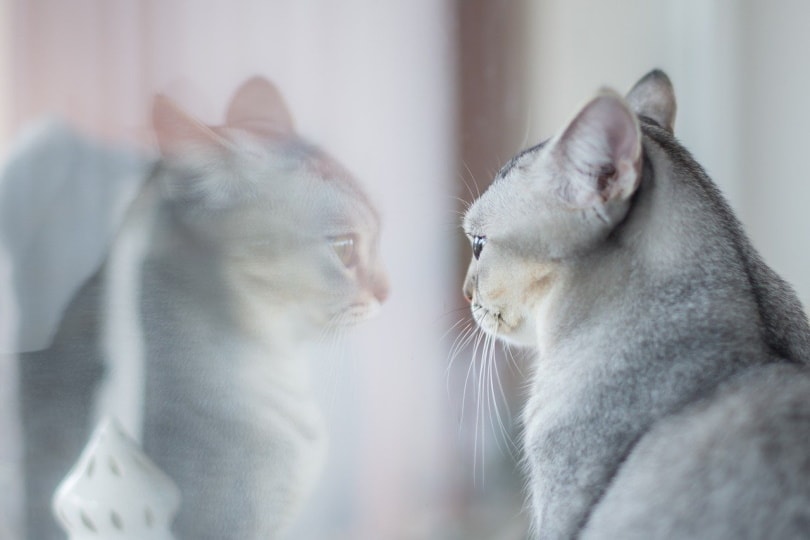
4. Strained Vocal Cords
If you’ve noticed your cat’s silence has followed a recent spate of meowing, it could be that your cat has stressed their vocal cords. Straining the vocal cords might mean it won’t meow for a few days, but your cat should recover quickly.
Another way your cat can aggravate its vocal cords is through surgery. If your vet has had to insert a tube into your cat’s throat, it can irritate the throat and lead to inflammation. Your cat will lose their voice for a few days but will be back to meowing at the neighbor’s cats in no time.
5. Injury
When a cat is sick, they won’t draw attention to themself. Instead, you might notice your cat hiding from you. Pain from an injury can also cause your cat to feel sad, especially if it’s a recurring injury that has caused long-term pain.
While there are some injuries your cat will recover from on their own, it’s essential to monitor your cat’s behavior in case they need veterinary care. If your cat eats something they shouldn’t, for example, it could damage their throat. Vet attention is recommended because injuries can get infected, and foreign objects can damage the digestive tract.
Even if you think an injury isn’t serious, we recommend contacting your vet to be sure.

6. Illness
When we talk about illness, we don’t just mean something that affects the throat. Of course, some illnesses would stop your cat from meowing. A minor respiratory tract infection will result in your cat losing their voice, but sickness can also affect your cat’s mood, which means they don’t feel like meowing.
Other signs might accompany an illness, but this isn’t always the case. Just like an injury, some illnesses can cause pain that will stop your cat from moving much. They can’t do everything that brings them joy, like scratching, causing mischief, exploring, and climbing. Arthritis would be a good example of this, as it causes chronic pain and affects joints and mobility. All of these contribute to a low mood, resulting in a lack of vocalization.
Any changes to your cat’s mood should be taken seriously. Meows might be used to communicate, but sometimes a cat’s silence also tells us something. If you are ever worried about a change to your cat’s behavior, contact your vet.
 Conclusion
Conclusion
There are several reasons for your cat’s silence; some are far more serious than others. It’s advisable to contact your vet if you notice any changes to your cat’s behavior—unless you’re certain of the innocence behind your cat’s silence.
If you believe your adopted cat is just settling into their new home, it’s nothing to worry about. You might find that time is your biggest healer regarding grief or minor injuries, but medical intervention might be required for your more serious problems.
Featured Image Credit: sharshonm, Shutterstock

